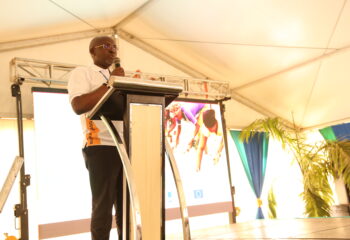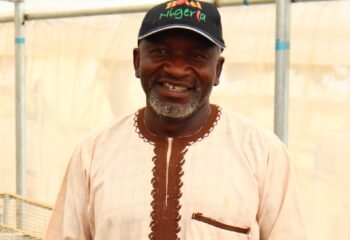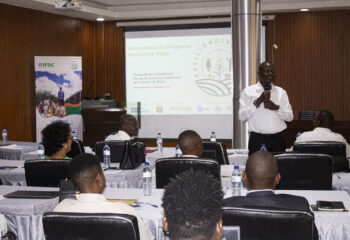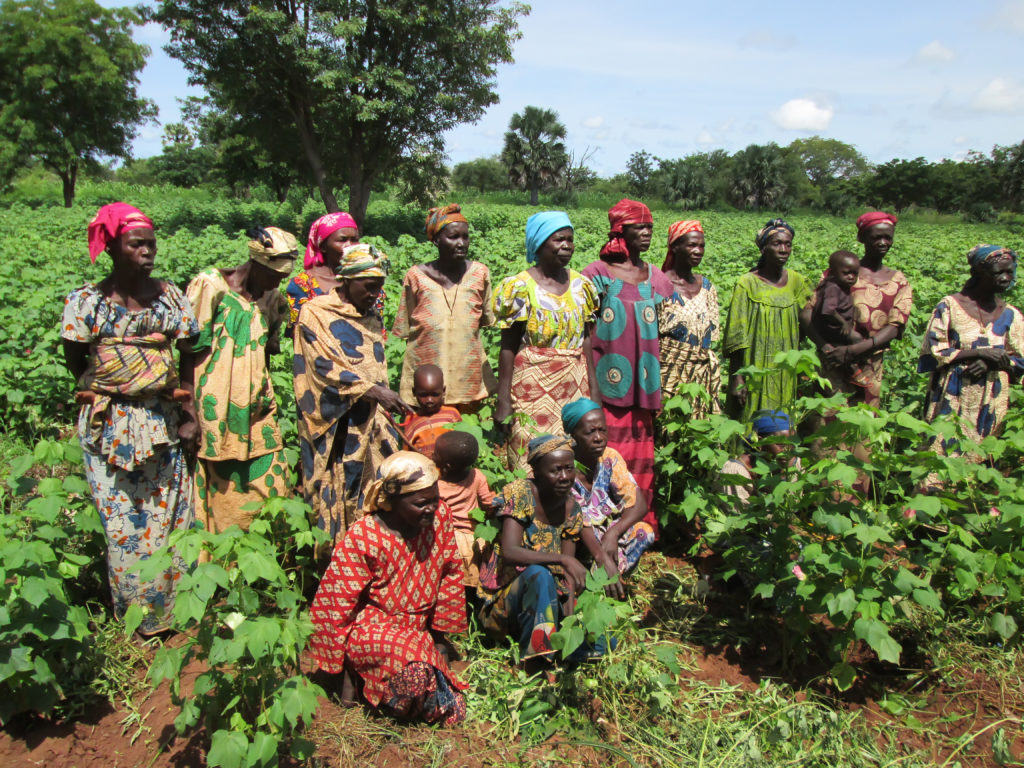
The USAID C-4 Cotton Partnership (C4CP) project targets men and women farmers in cotton-producing areas of the C-4 countries (Benin, Burkina Faso, Chad and Mali) to improve household production, income and food security of smallholder farmers, particularly cotton producers and processors.
Training is an essential component to reaching the project’s goal. Through the production and dissemination of training modules, and in cooperation with local partners, C4CP teaches Good Agricultural Practices (GAP) to extension workers. While learning these methods in a classroom-style setting is helpful, like many IFDC projects, the results of GAP are best seen first-hand. Demonstration plots established by lead farmers make the “theoretical” learning a reality.
In Chad, for example, the project established demonstration plots in women-owned fields to better reach women’s groups. Two project partners, the Office Nationale du Developpement Rural (ONDR) and the Société cotonnière du Tchad (COTONTCHAD), participated in the establishment of and training in these demonstration plots. These on-farm sessions directly trained around 200 women farmers.
To maximize these efforts, the project trained groups of agricultural extension agents from project partners. With each agent working with an average of 70-75 farmers, project efforts reached nearly 6,000 farmers – more than 1,500 of which were women. These participants were glad to learn more, and according to them,
“We grow cotton for the first time thanks to USAID C4CP and with ONDR support.”
The approach and results are similar in Burkina Faso, where women represent 52 percent of the population and are relegated to farm marginal lands. Training these women is key to tapping into their potential – improving productivity, income and food security.
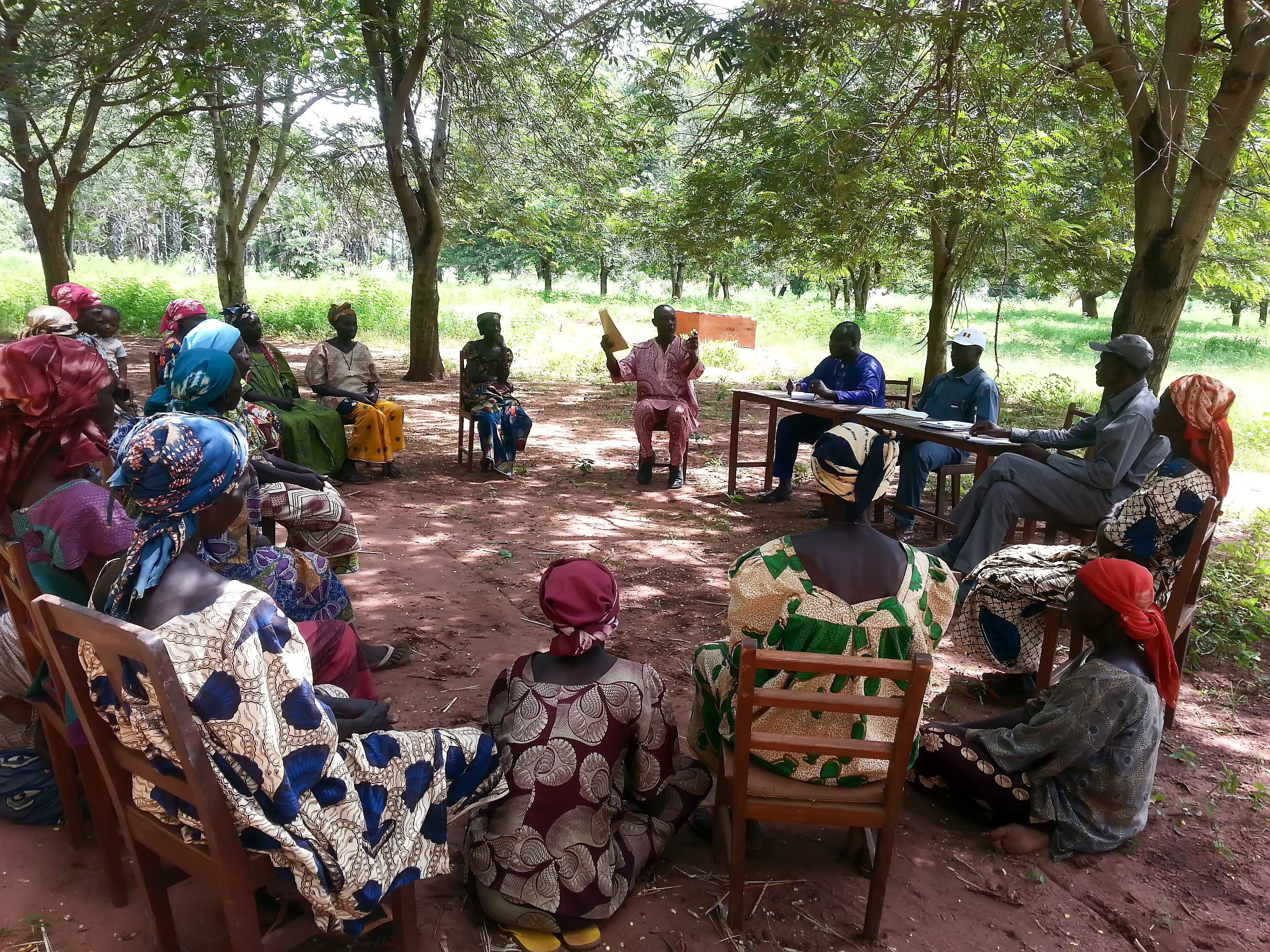
The Coobsa Agricultural Service Provider Cooperative (COPSA-C), a project partner comprised of 2,500 members, participated in training one of its agricultural producer associations. The Vlassor Group, comprised of 75 percent women, were trained in the application of GAP to the rotational crops grown in association with cotton.
One of the group members, with project assistance, established a demonstration field. Hien Kouniké provided a site to showcase techniques for improved maize and cowpea production. From soil preparation, plowing and seeding, to fertilizer application and field maintenance, Kouniké explained what she had learned during IFDC training sessions.
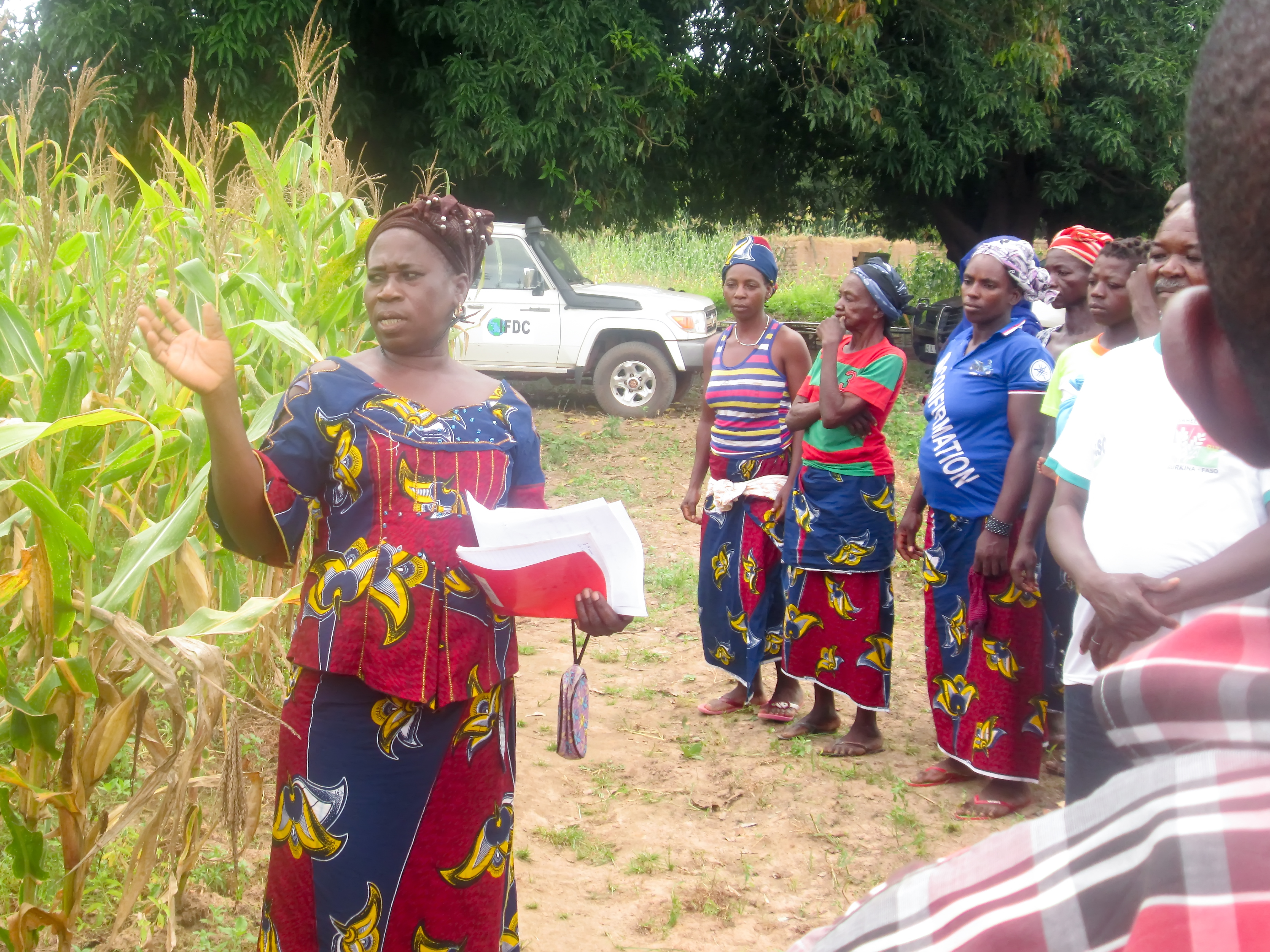
Kouniké’s success impressed all of the visitors – with many commenting on the demonstration field being an excellent place to learn. According to one attendee,
“At the beginning of the practical training…when we learned about the recommendation to space out the seed holes every 30 centimeters, we said between ourselves that we thought this effort would be a lost cause. However, seeing the results, this is something to be shared with others.”
Funded by USAID, the project will continue to disseminate innovative training modules on GAP, promoting the use of improved varieties and recommended techniques to sustainably improve agricultural productivity in West and Central Africa.

